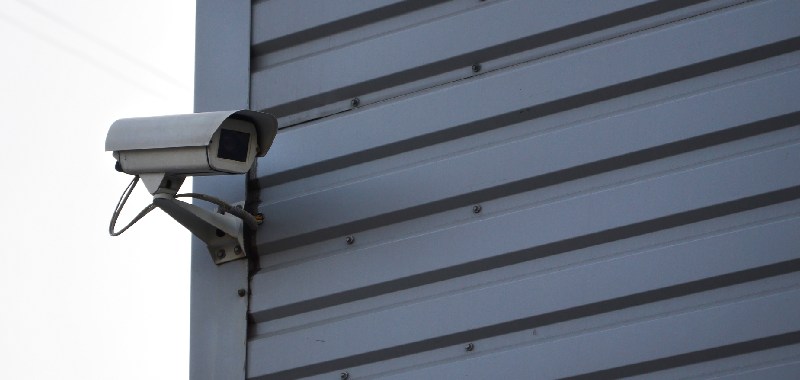
Can the company monitor my activity through video surveillance cameras in the workplace?
There are more and more ways for employers to control the activity developed by their workers, and one of the most common is video surveillance, -monitoring through video cameras located in the workplace-, which allows companies to control, in real time or delayed, what their workers do.
Is it legal for the company to install video surveillance cameras in the workplace?
The big question regarding the use of video surveillance cameras is whether it is a legal practice or not.
In reality, the answer is simple, since, as established in Article 89 Organic Law 3/2018, of December 5, on the Protection of Personal Data and Guarantee of Digital Rights (“LOPD”), employers may process images obtained through camera or video camera systems to monitor the activity of workers, under the protection of the provisions of Article 20.3 of the Workers’ Statute (“ET”).
However, although it is a legal measure, this control of the activity through the use of cameras is not unlimited, since both article 89 LOPD and article 20.3 ET limit such possibility for the employer, being necessary to keep in its adoption and application, the due consideration to the dignity of the workers.
Finally, it should be noted that, although the installation of surveillance cameras in the workplace is legal, article 89.2 LOPD limits the spaces within the workplace where such installation may be carried out, specifying that it may not take place in changing rooms, toilets or rest areas.
Standards to be met by a company when installing security cameras
Regarding the rules that a company must comply with when installing security cameras, first of all, it should be noted that these rules are intended to ensure the protection of workers’ rights to privacy and data protection.
In this sense, again, Article 89 LOPD regulates the way to implement a video surveillance system: the workers and, where appropriate, their representatives, must be informed in advance, expressly, clearly and concisely, about this measure.
However, this duty of information, in practice, can be fulfilled in various ways: Several rulings have been handed down indicating that this duty may be understood to have been fulfilled when an informative sign has been placed in a visible place indicating the existence of the video surveillance system, the person responsible for it and its purpose.
Can these recordings be used to justify dismissal?
Although the question of the legality of having video surveillance cameras in the workplace is not controversial, the possibility of using the recordings obtained from them has given rise to much discussion, although there should be no objection to these recordings being used to justify a dismissal, provided that, as indicated above, the employees have been informed of the existence of the cameras and the possibility of the Company using the recordings for disciplinary purposes.
However, in practice, many doubts may arise, since there are cases in which, without even informing the workers, the images obtained through hidden cameras have been accepted by our courts.
In such cases, the main issue is the analysis to be carried out in order to determine a possible violation of the fundamental rights to privacy and data protection, since, although the employer’s power of control is not unlimited, fundamental rights are not absolute either, as the Constitutional Tribunal recalls.
This issue can be clearly appreciated and is developed in its recent Judgment dated September 29, 2022.
This judgment recalls the case law, both national and TEDH, on the matter, which has established a series of requirements that must be used when determining the legality of the images obtained through video surveillance cameras.
These criteria consist of the need to weigh in each case different elements in order to determine the presence of the criteria of suitability, necessity and proportionality of the measure, being these:
- The existence of suspicions that may legitimize the installation of the video surveillance system.
- The scope of the surveillance and the degree of intrusion in the private life of the workers (period during which the cameras, places and personnel under surveillance are used).
- The scope of the measure in time, in order to analyse whether the video surveillance was limited to the viewing of the period necessary to identify the worker or workers responsible for the offense whose commission the Company suspected.
- That the cameras are not used for purposes other than the verification of suspicions.
- The necessity of the measure, that is, that no other less invasive and equally effective measure could be adopted to prove the labour infringement.
In the event that the court considers that the above criteria have been met, the evidence provided by the Company at the trial, i.e. the recordings obtained through the video surveillance system, must be considered lawful.
Otherwise, it would be understood that such evidence is unlawful and therefore null and void, with the consequence that it will not be accepted or taken into consideration when determining whether or not the dismissal is lawful or unlawful.
In this sense, it is necessary to specify that, often, the inadmissibility of the camera recordings can lead directly to the declaration of unfair dismissal, since these, in many cases, are the only evidence available to the Company to prove the breach committed by the workers.
Legal aspects to be taken into account
First of all, it seems to be clear that, when analysing issues of this type, or organizing the business activity with a view to sanctioning workers, it is necessary to take into consideration a series of requirements or previous steps, in order to guarantee or increase the probabilities that the company’s actions are in accordance with the law.
In this sense, it should be noted, as it is clear from what is stated in the STC of September 29, 2022, that each situation is unique, so it cannot be said that there is a magic formula when it comes to installing video surveillance cameras that leads to a dismissal.
Likewise, this is not a peaceful issue either. Although the last criterion of the Constitutional Court is the one set out above, it should be noted that in the same Judgment there is a dissenting opinion, which was supported by 5 of the 11 judges of the TC plenum, which reflects a clear disagreement with the decision and interpretation reflected by the majority.
It is clear that the important thing to take into consideration is that, in order to use recordings for disciplinary purposes, it is necessary to define a strategy beforehand, and that this has been designed with the corresponding legal advice.
Therefore, and given the precautions that must be taken in order to be able to use a video surveillance system for disciplinary purposes, without incurring in illegalities, from the Labour Department of RSM Spain, we can advise and help you in any matter of this type or similar, so do not hesitate to contact us.

Letslaw es una firma de abogados internacionales especializada en el derecho de los negocios.







